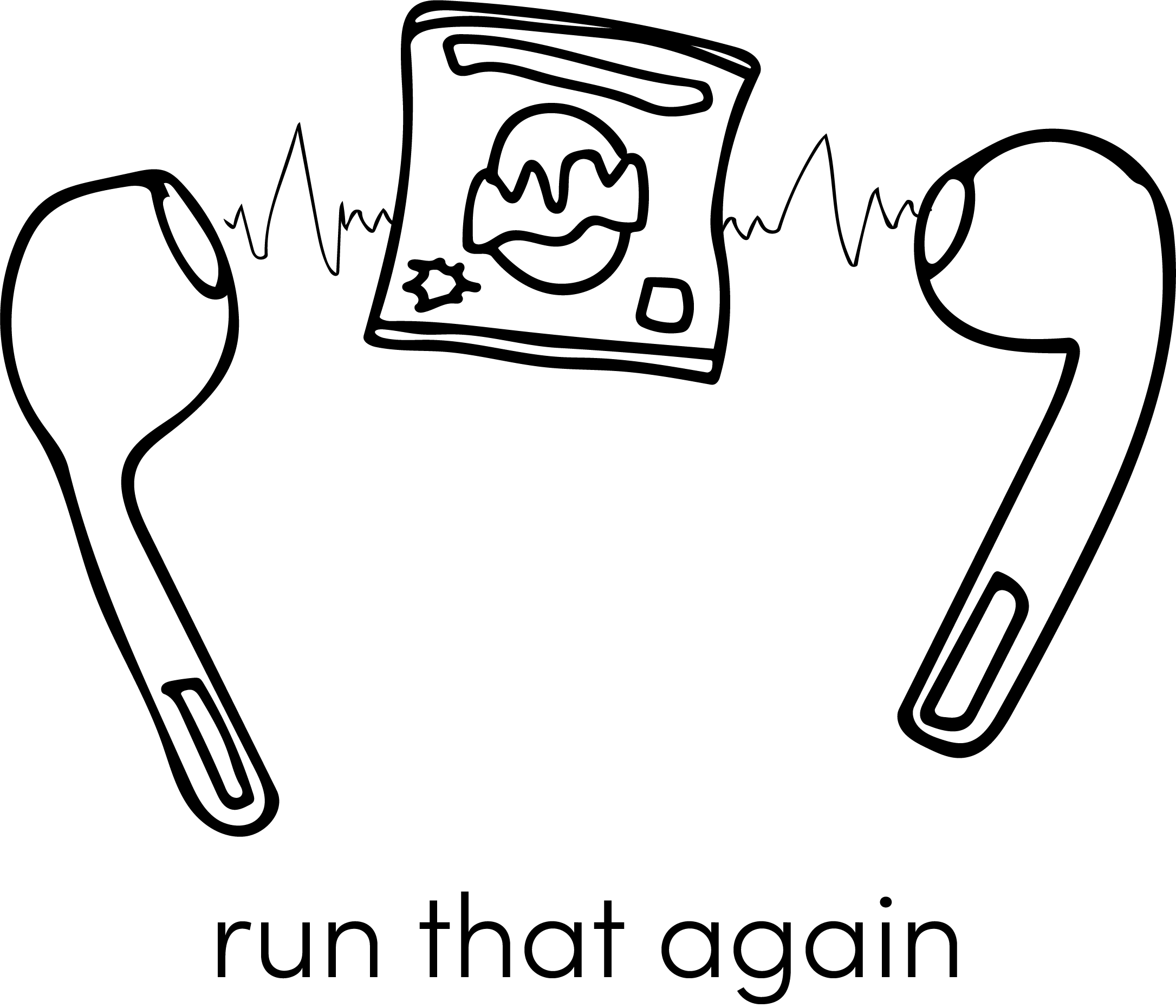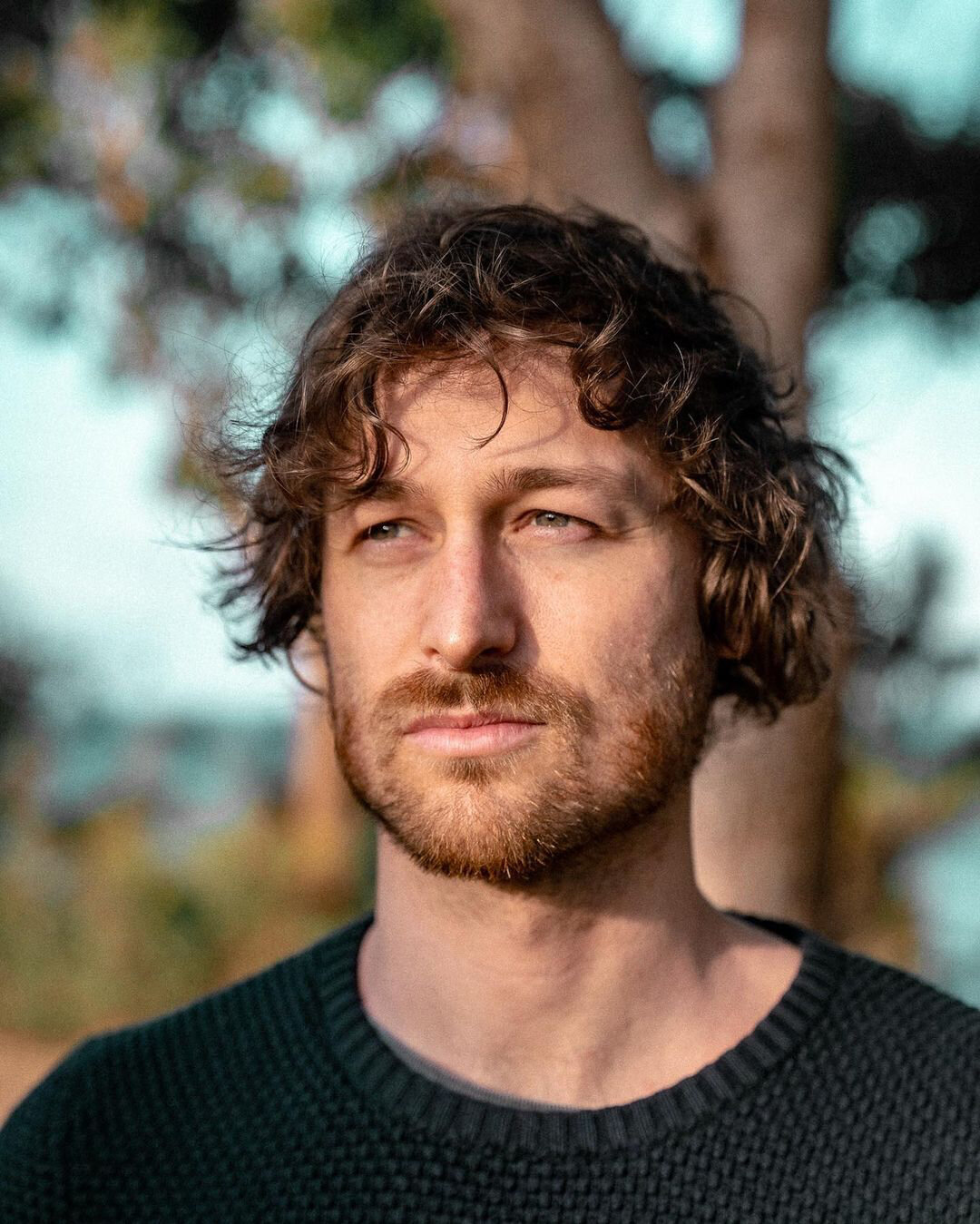Harrison Storm's 'Be Slow' is a stunning homage to introspection
By Run That Again
On 4th December, Harrison Storm will release his latest song ‘With You’; a dreamy and soulful love song that is an instant classic, and just one of the 5 skilfully crafted songs on his upcoming EP ‘Be Slow’ out Friday; a stunning homage to introspection in love loss.
Hailing from Australia, Storm, grew up in sunny Mornington - a little beachside town. The indie-folk artist quickly drew a lot of attention after gaining several key placements on major playlists and was quickly signed by Terry McBride after a DM on Facebook would you believe! Storm has been heard on Radio 2, KCRW and has even been licensed to NBC, MTV and ABC - all the alphabet companies!
Having played alongside the likes of Snow Patrol and The Paper Kites we knew Harrison Storm was going to be an interesting one to interview and the artist has amassed over 160 million streams on his music on Spotify; a testament to his power to connect with listeners.
We had the pleasure of chatting with him about his music.
Interview
One of our favourite tracks of yours is Sea and Fire. What were the influences for Sea and Fire and how do you feel like your sound has developed over the years?
”Musically the influences run deep for me on this song. I was listening to some Fleetwood Mac the other day after not indulging for quite a while and was reminded of how much the acoustic guitars in their music has influenced my own. Atmospherically I am influenced by more modern artists like Ben Howard and Benjamin Francis Leftwich. I feel my sound has changed over the years towards something more sure of itself. It is more precise and considered. I think I have a much stronger idea of what I want the music to sound like now. But of course, that is always changing in itself.”
How did growing up in Mornington affect your sound?
”I was very fortunate to live quite close to the beach growing up. We had a creek running through my backyard where I’d spend a lot of time exploring by myself or with friends. My sound has definitely taken elements of my upbringing along with it. It seems cliched but nature was always a place of solace for me and I found a lot of relaxation there. Naturally, I tried to find the same feeling when writing and creating music.”
What’s the best part of performing live and how have you been keeping your audiences engaged during lockdown?
”I have a whole new appreciation of live performance now that we’ve been in lockdown for such a long time. Looking back on it now, there really is nothing that comes close to sharing that magical intimacy that is created at a show. The energy between the artist and audience is something you can't get anywhere else. Having that connection with people is the best part for me. I’ve been experimenting with some live streaming shows to stay connected with my audience and also releasing alternative versions of songs. It's been very interesting and i'm learning a lot!”
What’s your favourite song you’ve ever released and why?
”This is a tough question because so many of my songs are connected with very particular times and emotions in my life. I feel like my answer to this question can change but right now, one of my favourite songs i have released is called Dreams. It was written during a time where I was really learning a lot about myself and the world we live in. How our perception forms our relationship with reality and how that is built, was something I was very wrapped up in.”
What was your best moment supporting Snow Patrol or any other artist on your journey?
”Supporting Snow Patrol was quite surreal, it was just the 1 show in Columbus and as i was playing my last song i looked over to see Gary Lightbody on the side of the stage watching. Afterwards, he came into my greenroom and was really supportive and encouraging of my performance. I was pretty star struck to be honest, it was an incredible opportunity to be supporting such incredible songwriters and performers!”
You’ve amassed over 100 million streams across your tracks, but what was the first track that hit 1 million and what did that feel like?
”The first track to hit 1 million was Sense of Home. I remember feeling so overwhelmed at the time that my music had reached so many ears. I had some people reach out to me after they'd heard the song saying how it had meant something to them and that was something that I'll never get tired of hearing. Knowing your music is connecting with people is truly inspiring!”
Favourite pastime when you’re not making music?
”I enjoy being out in nature as much as possible. Surfing, walking or just running a muck with friends. I enjoy reading books too. I just moved to a new area and there is a local modern asian takeaway restaurant that i am obsessed with. It has everything !”
Tell us one thing about you that might surprise us?
”I went to university to study Civil Engineering, which is a whole different world away from music. I never finished the course because music was too hard to ignore!”
Who has been the most influential person on you on your musical journey so far and what’s the best piece of advice you’ve received from this person?
”I had the absolute privilege of supporting the great Gregory Alan Isakov when he first toured Australia in 2018. His music is something that I find so incredibly beautiful and enriching. He is a real gentle soul and his passion for his craft is very inspiring. He would drop little gems of advice here and there and one thing that really hit me, it was quite simple, was to just keep going. He was telling me stories of his friends and people he knew giving up music because they weren't seeing “success” . But if you keep going and keep doing what you love, who knows what will happen.”
Is there any way in which you think the music industry could adapt for the better?
”There are so many things to say about this question. One thing is, there needs to be a serious reconsideration of the importance of mental health and general well being of artists in todays industry. Artists are so integral to our culture and I believe they are severely undervalued and under appreciated. There is a real pressure on artists to steer towards what the industry deems “successful” and this can take the artist away from who they really are. This in turn creates so many problems with their identity, their understanding of themselves and where they exist in the world. It is a tough and complex issue to address but something that I am very passionate about.”

